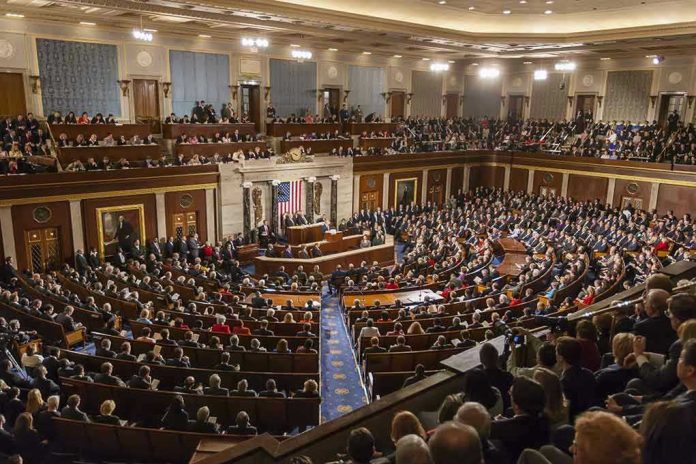
The only thing more outrageous than a government shutdown is Congress still getting paid while the rest of America holds its breath—Senator John Kennedy wants to end that tradition, and his plan could finally force lawmakers to feel the pain they inflict.
Story Snapshot
- Senator John Kennedy proposes halting Congressional pay during government shutdowns.
- The plan sidesteps constitutional hurdles that normally guarantee lawmakers’ pay.
- The bills seek to align lawmakers’ incentives with the public interest in keeping government open.
- If passed, the proposal could reshape shutdown negotiations and public trust in Congress.
Lawmakers and the Shutdown Paradox
Every time Congress lets the government grind to a halt, the consequences ripple nationwide—federal workers skip paychecks, agencies shutter, and essential services stall. Yet, Congress’s own paychecks keep clearing, untouched by the gridlock. Senator John Kennedy, Republican from Louisiana, calls this not just bad optics but a fundamental failure of accountability. His plan: suspend Congressional pay for every day the government remains closed, forcing lawmakers to bear the same uncertainty that millions of Americans face in a shutdown.
For decades, shutdowns have been used as high-stakes leverage in budget battles, but the pain rarely reaches the Capitol’s marble corridors. Kennedy’s bills aim to change that calculus. By making Congressional pay contingent on reopening the government, the proposal could upend the incentives that keep shutdowns recurring. This approach, Kennedy argues, is about restoring basic fairness—if federal employees and contractors suffer, Congress should not be immune.
Navigating Constitutional Roadblocks
The U.S. Constitution’s 27th Amendment forbids laws that immediately alter lawmakers’ pay, a safeguard against self-dealing and retribution. Kennedy’s plan navigates this requirement by structuring the pay halt as a delay rather than an outright cut. Lawmakers would not lose their salary but would instead forgo it during the shutdown, receiving it only after a deal is reached and the government reopens. This distinction, supporters say, ensures the proposal passes constitutional muster while still delivering a real financial consequence for inaction.
Legal scholars have debated similar proposals in the past, but Kennedy’s effort is designed to survive judicial scrutiny. By focusing on timing rather than amount, the bills avoid direct violation of the amendment. Critics counter that even delayed paychecks could be challenged as an unconstitutional penalty, but the move has garnered bipartisan curiosity—if not yet consensus—by directly addressing Americans’ frustration with Congressional privilege.
Could Congress Actually Change Its Ways?
Supporters of Kennedy’s approach contend that lawmakers will be far less likely to allow a shutdown if their own pay is on the line. Shutdowns have become a political weapon, often wielded without immediate consequence for those holding the budget hostage. If the financial discomfort becomes mutual, the theory goes, negotiations may resolve faster and with less brinkmanship. While the plan’s passage is hardly guaranteed, public support for such measures is strong, as polling repeatedly shows Americans want Congress to share in the consequences of its dysfunction.
Opponents argue that Congressional pay is symbolic in the broader context of budget disputes, pointing to the relatively high net worth of many lawmakers. Yet, the symbolism is precisely the point—ending the perception that Congress operates by a different set of rules could help rebuild trust and accountability at a time when both are in short supply.
The Next Shutdown Showdown
If Kennedy’s bills make it to the floor, the debate will test whether Congress is willing to put its own skin in the game. The proposal may not prevent every shutdown, but it would make the next one a far less comfortable prospect for those responsible. As the federal budget cycle ticks toward its next deadline, all eyes will be on whether lawmakers are finally ready to stand with the Americans they represent or whether old habits—and old privileges—will die hard.
Should Kennedy’s plan become law, future shutdowns could look very different, not just for Washington’s insiders but for every American who expects their government to function and their leaders to be accountable, especially when it matters most.
Sources:
Kennedy pushes plan to halt Congress pay during government shutdown



